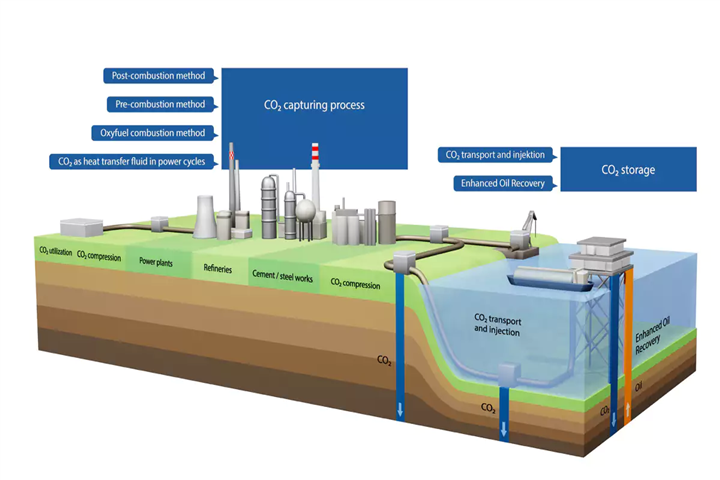Introduction to CCUS Concepts
Global climate goals and role of CCUS
CO₂ sources, emissions, and reduction pathways
Overview of CCUS value chain
Types of capture and storage technologies
CO₂ Capture Technologies
Pre-combustion, post-combustion, and oxy-fuel capture
Solvent-based and membrane technologies
Capture efficiency and process optimization
Energy consumption and environmental impact
CO₂ Compression, Transportation, and Utilisation
CO₂ compression and dehydration processes
Pipeline design and safety standards
CO₂ utilisation pathways (EOR, chemicals, materials)
Emerging technologies for CO₂ conversion
CO₂ Storage and Monitoring
Geological storage fundamentals (saline aquifers, depleted reservoirs)
Site selection, injection operations, and integrity management
Monitoring, verification, and leakage detection
Legal, regulatory, and liability frameworks
CCUS Project Integration and Management
Project lifecycle and feasibility assessment
Cost estimation, risk assessment, and stakeholder engagement
Case studies of CCUS projects worldwide
Future trends and innovations in carbon management






comments (0)